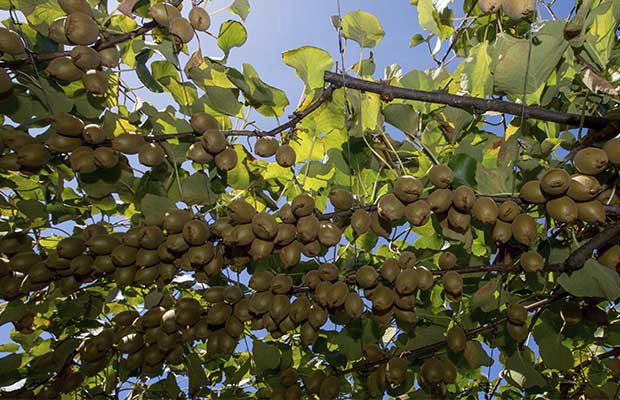The primary sector needs to face up to reality when it comes to its reliance on migrant labour, and realise that those days are probably gone.
This is according to Zespri chief executive Daniel Mathieson, who says the sector has to look at how it can restructure its business and take in more people on a permanent basis.
Speaking at a panel of sector leaders at the Primary Industries of New Zealand Summit in Auckland this month, he said Zespri is in discussions across the kiwifruit industry about how to progress people so they are not just turning up and leaving.
He backed calls to focus on New Zealanders first, but said this would not be enough, given the industry’s growth projections.
“Demand is enormous. It is getting stronger and it won’t go back. New Zealand is seen as a great place for food products – healthy, safe and nutritious – and we are a great country to supply the world, but we are going to need people to do that,” Mathieson said.
There needs to be a better balance between the industry demonstrating healthy growth for the local workforce and the number of people coming into the country.
“Covid has changed our world, and now it’s time to reset and get that balance right between New Zealand and the workforce we need to come in to make sure our industry is successful in the future,” he said.
Read: Labour pains here to stay, warns SFF
At Zespri, labour issues are having a marked impact on product quality, he said. Zespri makes its money by being the best in the world, but the lack of people across the supply chain in the past two years means quality standards are starting to slip.
“That’s actually starting to erode customer goodwill and the value we can get in the marketplace, so it’s a really serious issue,” he said.
But the situation is also providing opportunities to ensure there is a healthy workforce across the sector, and to address the issue of permanent employment opportunities, he said.
Former Federated Farmers vice-president Karen Williams said it is a fair cop that the primary sector is being asked to map out what its future looks like when it comes to the labour issue.
The effects of the shortage of labour are being seen in health and safety, she said.
“We lose, on average, 16-20 farmers a year from accidents so we need to look at the labour requirements really carefully to make sure we have the right numbers coming to deal with this because we are seeing extreme pressure,” said Williams.
“At the end of the day it is all about people and we need to look in the toolbox for all of the things we can to make sure we mitigate adverse effects on them.”
Horticulture New Zealand chief executive officer Nadine Tunley said the industry is characterised by its sharp seasonal peaks and it is about 6,000 workers short for the season ahead.
There is confusion and complexity around the process of getting foreign workers, which makes it challenging – though the industry also needs to make sure it takes advantage of opportunities to bring workers in when they are offered by the government.
“That’s a criticism Minister O’Connor managed to throw at me the other day, that all of us have asked for certain numbers in the last six months and haven’t been able to fill them,” Tunley said.
For the horticulture industry, it is an issue of timing. By the time the industry had requested the numbers and they had been processed, it was too late and no one picked them up, she said, adding: “There’s quite a bit of education we have to do across the ministry.”
Mathieson said young people want to work for a company that has purpose and will address social and environmental issues. This presents an opportunity for agribusiness to tell that story.
“Sustainability is at the forefront of our mind and we know that if we don’t make changes, we will not have a viable industry going forward.
“I think there is an opportunity here to inspire younger people both in New Zealand and outside to come and work in the industry because we have a lot of businesses here trying to do good for the world.”
It is a big opportunity but that story needs to be amplified, he said.
Also read: Facing up to a permanent labour shortage
Asked why the government is not more responsive to requests for labour, Mathieson said some self-reflection is required. While there are some amazing employers, there are also some scoundrels – and the negative often has a bigger impact.
“It’s distorting the story and we have to have a look at ourselves as well, and when we see behaviour that is not right for the agribusiness sector, we have to take action against it,” he said.










